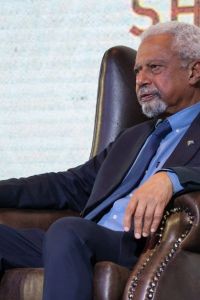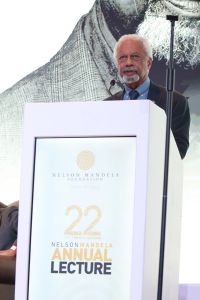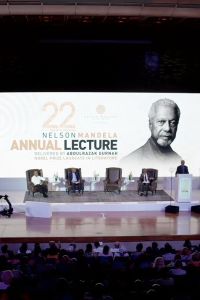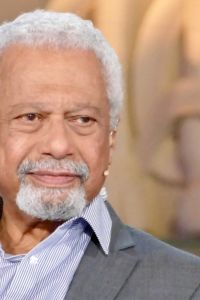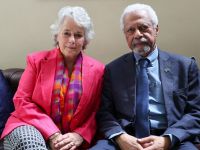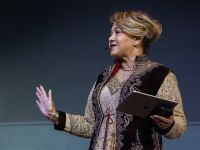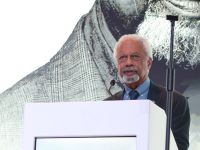The 22nd Nelson Mandela Annual Lecture was delivered by Nobel Literature laureate Abdulrazak Gurnah on 28 September 2024 at the University of the Witwatersrand's Linder Auditorium in Johannesburg at 3pm. (To view the event online, click here).
Gurnah, who won the 2021 Nobel Prize in Literature “for his uncompromising and compassionate penetration of the effects of colonialism and the fate of the refugee in the gulf between cultures and continents”, addressed the theme “Realising Our Shared Humanity”.
This theme reflects the notion that human beings are all one family and that there should be a deep sense of caring and concern for each other that transcends differences such as race, religion and nationality.
Gurnah is a former professor of English at the University of Kent. Born in Tanzania, the British novelist is a world-renowned figure in literature and academia. In 2021 he was awarded the Nobel Prize in Literature – becoming the first Black writer to receive the prize since 1993, when Toni Morrison won it, and the first writer from Africa since 2003, when South Africa’s JM Coetzee was the recipient
Gurnah is the author of several books, including Paradise, By the Sea, Memory of Departure, Pilgrims Way and Afterlives. His work has been nominated for the Booker Prize, the Whitbread Award, the Los Angeles Times Book Prize and the Commonwealth Writers' Prize.
Gurnah is known for creating work that questions simple narratives and structures. He also explores the aftermath of colonialism and war, as well as reckoning with a past deliberately eclipsed and erased by colonialism.
The foundation believes that having a sense of shared humanity means being committed to championing justice even if it goes against the interests of the rich or powerful, or even our own. In an international context, our sense of shared humanity should guide our understanding of justice and inspire us to pursue it beyond the borders of our respective communities and countries.
Global politics will continue to be a major issue in our lives as we grow ever more connected to each other. Not only does what happens beyond the borders of our respective countries affect us in economic, social and even emotional ways, but international dynamics are also evolving as the global order is being reimagined and reorganised.

